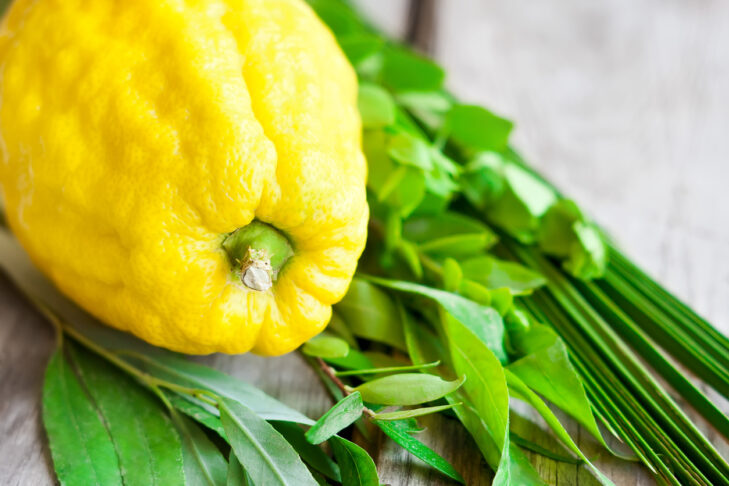Sukkot is one of my favorite holidays, which is not a big surprise because I love the fall. Fall means back-to-school outfits, colorful leaves, cozy fleece jackets and pumpkins. The other day, as my husband was getting ready to build our sukkah, he jokingly commented, “It’s a good thing we have a storage room in our basement because it’s filled with supplies for Jewish holidays.” I had never really thought about it, but then he started listing everything: sukkah parts and decorations, Chanukah box with games, dreidels and window decals, and Passover dishes, cookware and seder table decorations.
“You know, Amy, Sukkot is a lot like Chanukah and Passover because we bring everything upstairs for eight days, set it all up, and then we put it all back.” How did I never make that connection? I guess I am usually focused on what happens during those eight days. It’s the time in between when the memories are made.
Like many Jewish holidays, Sukkot appeals to our five senses, and we experience the holiday physically, intellectually and spiritually. Sitting in the sukkah, we feel the chill in the air, we sniff the fragrant etrog and hear the rustling of the lulav branches as we shake them and make a bracha (blessing). Sukkot means eating apple crisp and pumpkin bread for dessert. We see the full moon glowing and stars glittering through the s’chach (thatch roof) at night. Our sukkah has decorations from my kids’ childhood: colorful chains made by my son when he was in kindergarten, laminated fruit shapes made by my daughter and magen davids glued from tree branches they made together. We add gourds to dangle from yarn along with a string of lights and laminated Rosh Hashanah cards sent by family members from years past. Each year, we re-read the messages and symbolically bring each one of those people into the sukkah with us.
Sukkot is meant to be enjoyed with guests—those from our tradition and history, as well as people from our current lives. This year will be different, like everything in the last six months, as our only ushpizin (guests) will be the symbolic ones we bring into our conversations. I invite you to ask your children, your spouse, “Who are the people you’d like to sit across from in the sukkah? Why do you choose them? What can they teach us?” Last night, the conversation in our sukkah wandered from fantasy football teams to former neighborhoods, and then it landed on divine intervention versus free will, and tefilla (prayer). Trust me, you will learn a lot about each other, and from one another, during conversations had while sitting on cold chairs wearing sweatshirts and hats during dinner.
This post has been contributed by a third party. The opinions, facts and any media content are presented solely by the author, and JewishBoston assumes no responsibility for them. Want to add your voice to the conversation? Publish your own post here. MORE



